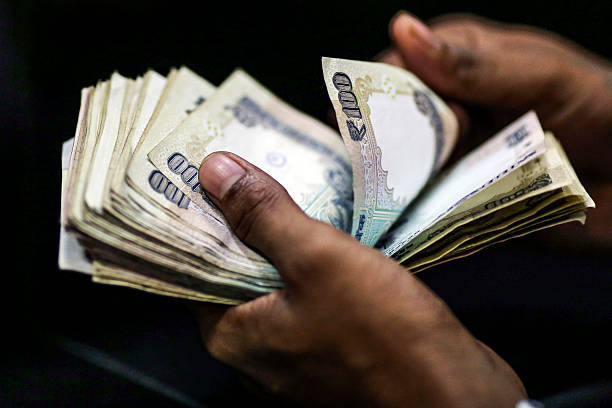04 Jul , 2022 By : Kanchan Joshi

While Indian corporates have seen a only marginal impact from the rupee’s slide so far, experts warned that the risks are building up, and any further weakening of the currency may start hurting companies.
The rupee continued to remain under pressure in the past week. On Friday, it closed 6 paise lower at 79.04 against the dollar, hitting a new low. Year to date, the rupee has depreciated 5.95% against the dollar, and many brokerages expect it to weaken further in the near term.
“The numbers until FY22 showed that corporate India was in good shape. Even though the fiscal fourth quarter (Q4) numbers were down, full-year balance sheets were relatively pristine, and there was decent deleveraging. So you do not see significant stress because the rupee has depreciated. However, you might see that happen going forward," said Vivek Jain, director, corporate ratings, India Ratings and Research.
“Q4 saw commodity prices peak, and whatever the companies bought in the quarter in terms of commodities will pass through the system in the first quarter, and you also had the rupee depreciation. So Q1 numbers might be off in terms of what the expectations might be," Jain said, adding that while there aren’t any significant signs of trouble, risks are building up.
Experts believe that while the sharp slide in the rupee is a big headwind, corporates, having previously burnt their fingers with forex mismanagement, are better covered today.
“Indian corporates significantly de-risked their borrowings compared to last time when the rupee depreciated sharply and a lot of them took big mark-to-market losses on their overseas borrowings that weren’t hedged," said Nishit Master, a portfolio manager at Axis Securities.
Pramod Menon, group chief financial officer of RPG Enterprises, added that corporates now have access to better products to manage currency risks and better awareness about forex risks.
“The understanding of forex management is far deeper than what it was a decade back. RBI, too, through various relaxations, has brought flexibility in taking forward covers. There are products which are available without taking significant risks, which has been facilitated," said Menon.
Menon added that at RPG, over 90% of the group’s currency exposure is covered as part of the group’s risk-management practices.
Currency depreciation, while negative for importers, benefits exporters, and thus, different sectors will see different impacts. Companies with more exposure to overseas trade will see a higher impact.
“The majority of rupee depreciation will hit companies with higher global exposure. The depreciating rupee will lead to imported inflation, and businesses that import their raw materials, such as chemicals and electronics, will get adversely impacted. On the other hand, export-oriented sectors like information technology and pharma will get rupee depreciation tailwinds. Most of these businesses have forward cover for their requirements and will be able to protect their margin turf to a large extent," said Aishvarya Dadheech, a fund manager at Ambit Asset Management.
To be sure, while depreciation tailwinds may help some sectors in the near term, companies expect that any margin boost will only be short-lived.
“In the short term, it may be positive for margins, but over the long term, margins will get rationalized. In sectors such as IT, we have seen in the past that customers tend to ask for rationalization of pricing," said RPG’s Menon.
He added that in other commodity-driven sectors, depreciation would increase pressure on margins as companies may find it difficult to pass on the price hikes.
“We have one entity that is a net importer, and any currency depreciation impacts us. The rupee depreciation pushes up raw material prices. All commodities, whether crude or rubber, are already at elevated levels; it gives us little headroom to further absorb any increase in prices," Menon said.
0 Comment